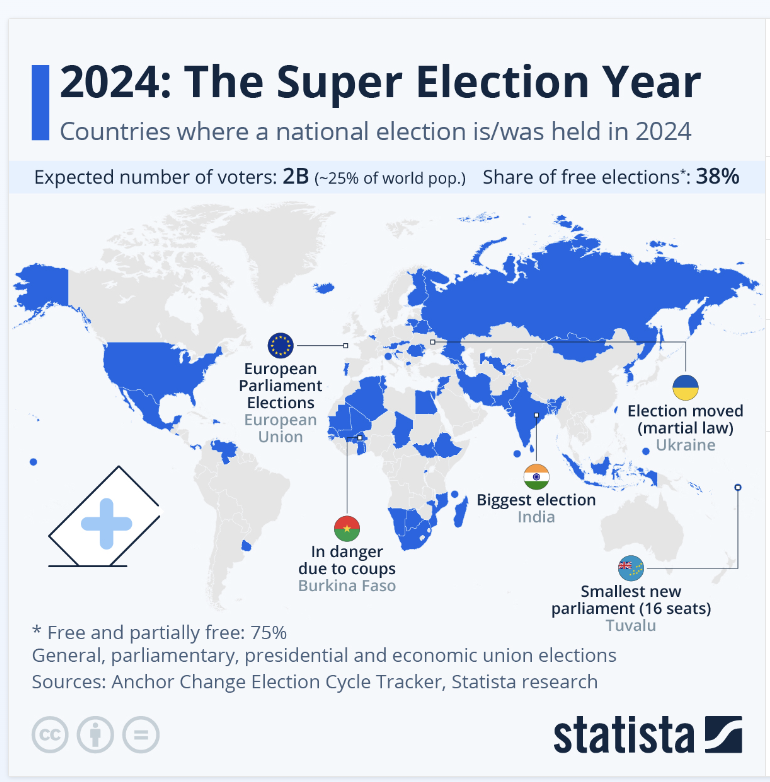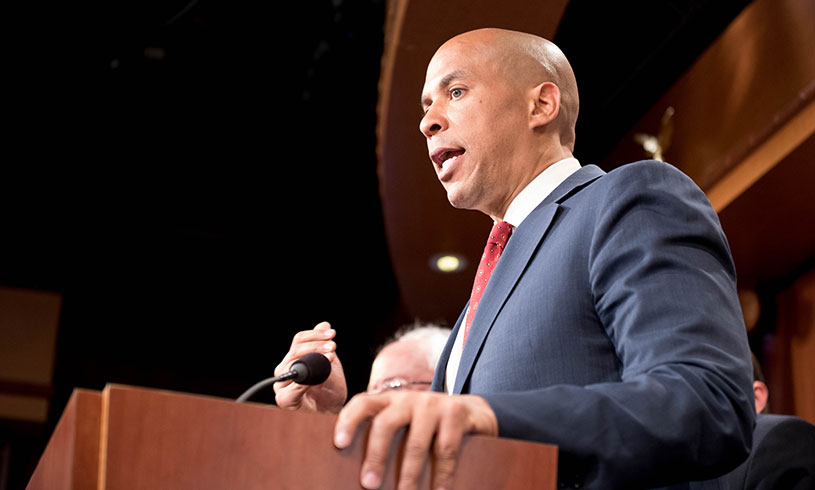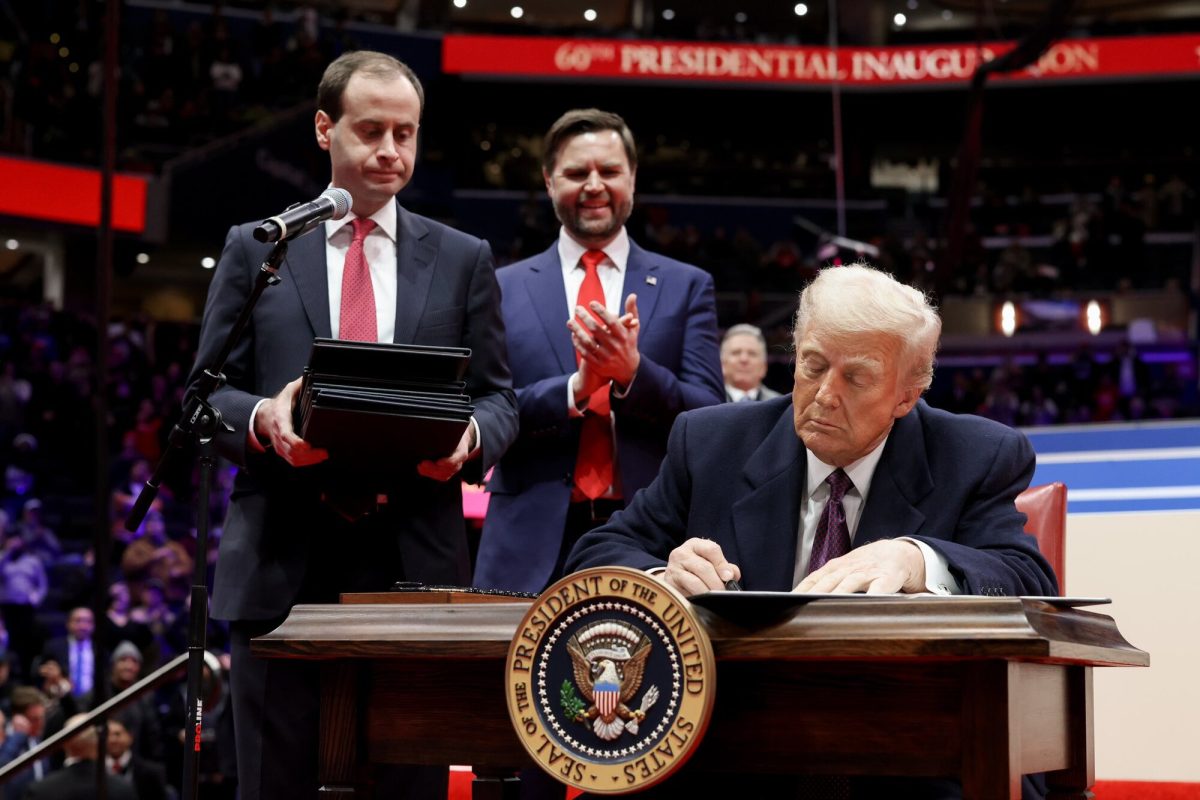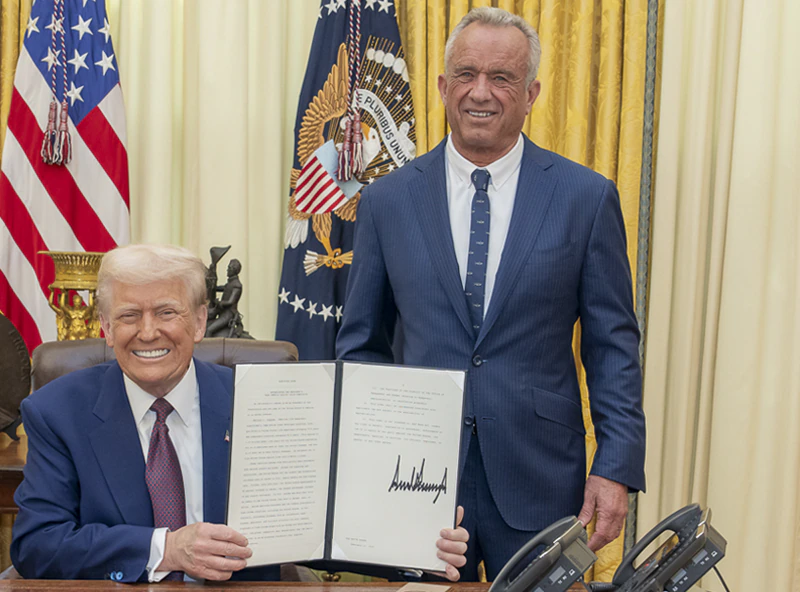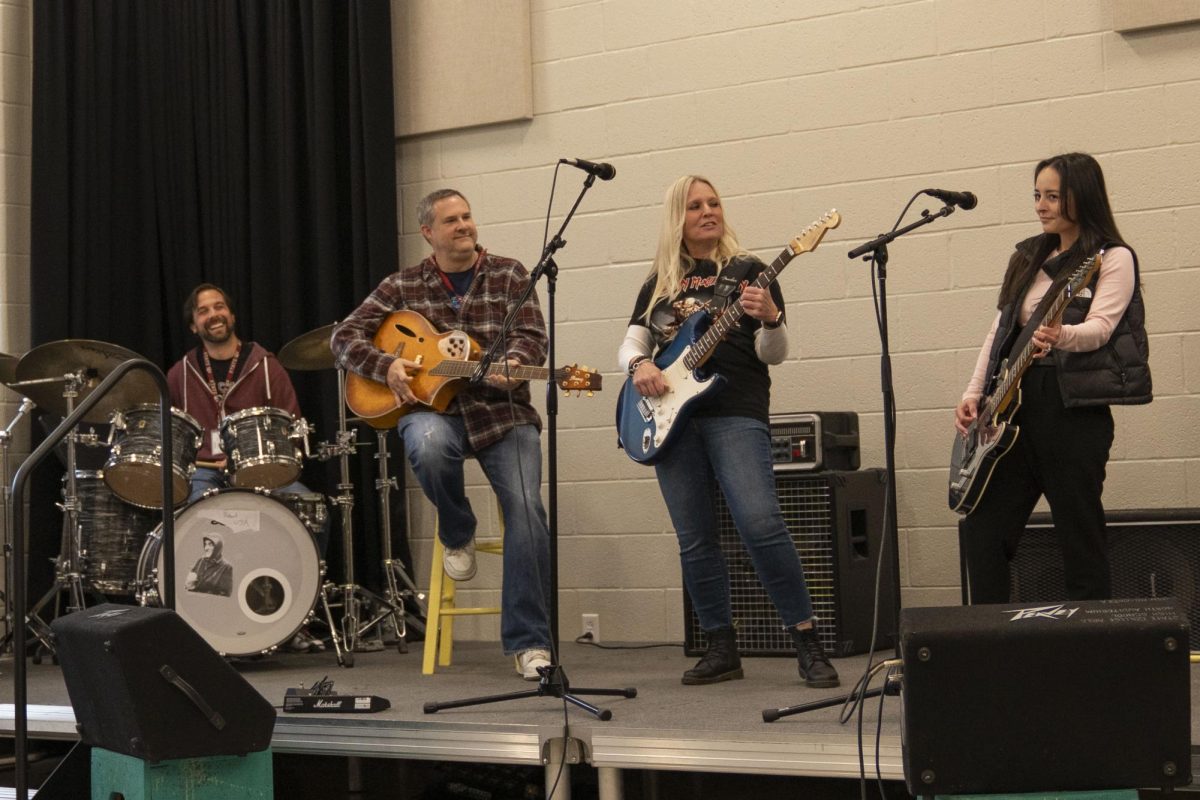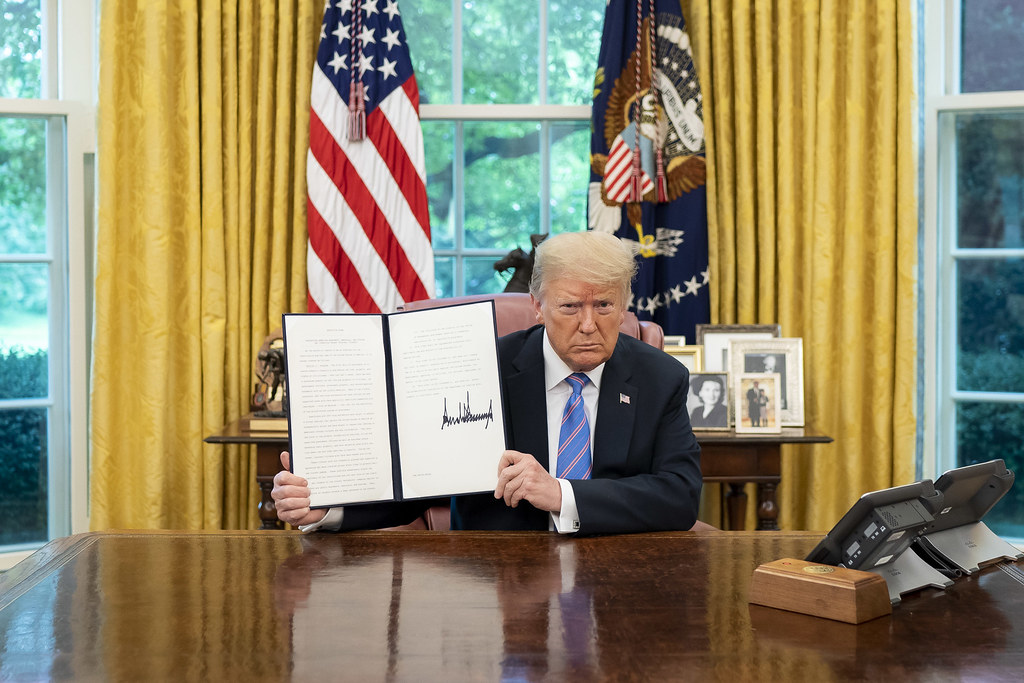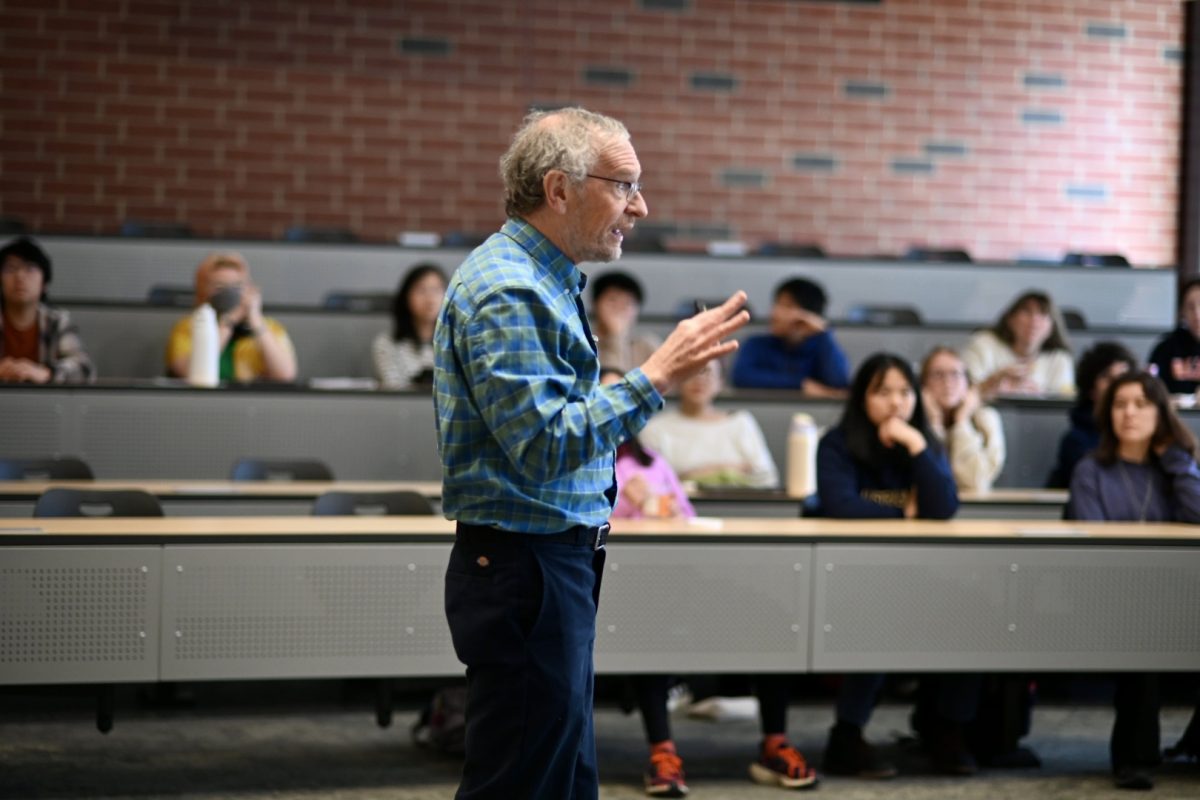To say that 2024 will have a defining political impact on global democracy understates the massive scale of votes to be cast this year. Eight of the world’s ten most populated nations will or have already had elections this year, including India, the EU, Indonesia, and Pakistan. In addition, the European Union and other critical democratic partners such as the UK, South Africa, and South Korea will be heading to the polls.
Headlines from AP to Time Magazine describe 2024 as the “ultimate” or a “record” year for global democracy. Although such claims may seem hyperbole at first glance, the evidence bears out. Statista estimates that nearly “2 billion voters – approximately a quarter of the world’s population – are expected to be heading to the polls this year.” It’s safe to say that this year will have huge ripple effects throughout the world.
Andrew Merritt, AP Comparative and US Government teacher at State High, believes that any election, regardless of where it’s taking place, is crucial to watch as long as democracy is on the ballot. In particular, he believes the elections in India and Mexico are critical.
“Modi is dangerous. India has taken a sharp turn towards ethnic nationalism through erosion of media freedom and silencing opposition,” Merritt said.
County Commissioner Amber Concepcion, who runs local elections and certifies results for the state, also echoed Merritt’s warnings about Modi.
In comparison, senior Carsten Briscoe cited Indonesia as one of the most important elections for young voters to follow because its “a resource rich country that controls a lot of prices for consumer goods” and “the leading candidate is the son-in-law of a dictator.”
Merritt also highlighted the upcoming Mexican election because of the way that President Andrés Manuel López Obrador (ALMO) has consolidated power by attacking journalists. “I’m not sure he can be trusted to go willingly unless his preferred candidate is elected,” he stated.
Journalists have raised similar concerns. Citing the Democracy Index, Time Magazine noted that “Of the 43 countries expected to hold free and fair elections this electoral megacycle, 28 do not actually meet the essential conditions for a democratic vote.”
In Centre County, commissioners are responsible for holding free and fair elections. Concepcion’s description of the complex process of local certification helps explain why so many countries may not meet essential conditions for “free and fair elections”.
“Elections are run by professionally trained staff members in accordance with directives and guidelines from the PA Department of State,” Concepcion shared in an email. “They are overseen by a Board of Elections, which is usually structured to have members of both major parties. At each polling place, there are Republican and Democratic Inspectors who are elected by the voters in that precinct, who work with the elected judge of elections at that precinct to manage the polling place.”
In addition to all ballot counts witnessed by community members, Concepcion shared an added election security effort that would be great to see adopted elsewhere. “In Centre County, we even live-stream video of our vote-by-mail counting center.”
Concepcion’s detailed account explains the complexities of ensuring free and fair elections.
As a member of Generation Z, Briscoe is concerned about how the 2024 election will affect his generation. “The American election this year and the potentially drastic change in the course of American politics, especially with Donald Trump’s trials, and how the election could affect countries and conflicts across the world such as Ukraine and Sudan. I think we should be paying a lot of attention to Ukraine as Western support kind of dwindles, as Russia’s fate and the conclusion of the war will be an extremely important factor for geopolitics in 2024.”
Merritt and Briscoe cited the Russo-Ukrainian War as an extremely important event that has the power to influence global democracy in the year. According to Merritt, “2024’s US election is critical for Ukraine and possibly Europe.” The EU and the US have dominated foreign aid to Ukraine, meaning that the outcomes of both the US and EU elections this year could have huge implications for not just Ukraine, but the global balance of power.
A key factor in securing the future of global democracy is youth voters. Two recent examples of this are the 2023 Polish election, which saw young voters mobilize against the authoritarian PiS in favor of a more liberal government, and the 2022 US Midterms, which saw young voters mobilize in favor of abortion rights.
“The youth vote is critical. As a demographic they have an immense amount of power, the trick is to effectively harness and mobilize it. I think once the younger generations realize just how much power they have, they will continue to vote in large numbers. The 2022 midterms were a great example,” Merritt said.
Briscoe mentioned the nature of youth voting and what determines higher or lower amounts of youth voting. “I think the tendency of younger people is to not vote when they feel like there isn’t a good reason to, and I don’t think that’ll come into play in this election. Like in 2020,or in the past where there hasn’t been these kinds of major controversies or deep societal conflicts going on, youth think voting is lower. Young people tend to vote when they feel like there’s something big at stake for their future, like in 2022 or hopefully this year.”
Locally, Concepcion distinguished odd years and even years in electoral politics, presenting an optimistic attitude for 2024 in Centre County. “2022 saw higher voter turnout among young voters, and I expect strong turnout for 2024. We’re currently preparing for that by expanding voter outreach and teaching people how to vote, in order to potentially increase voter turnout more generally, and match them with the turnout in other countries.”
Finally, Merritt discussed the importance of global democracy both at home and abroad. “Every election is the most important election. LD or authoritarianism is always on the ballot in some form. It demands informed voters, and is based on the rule of law.”

